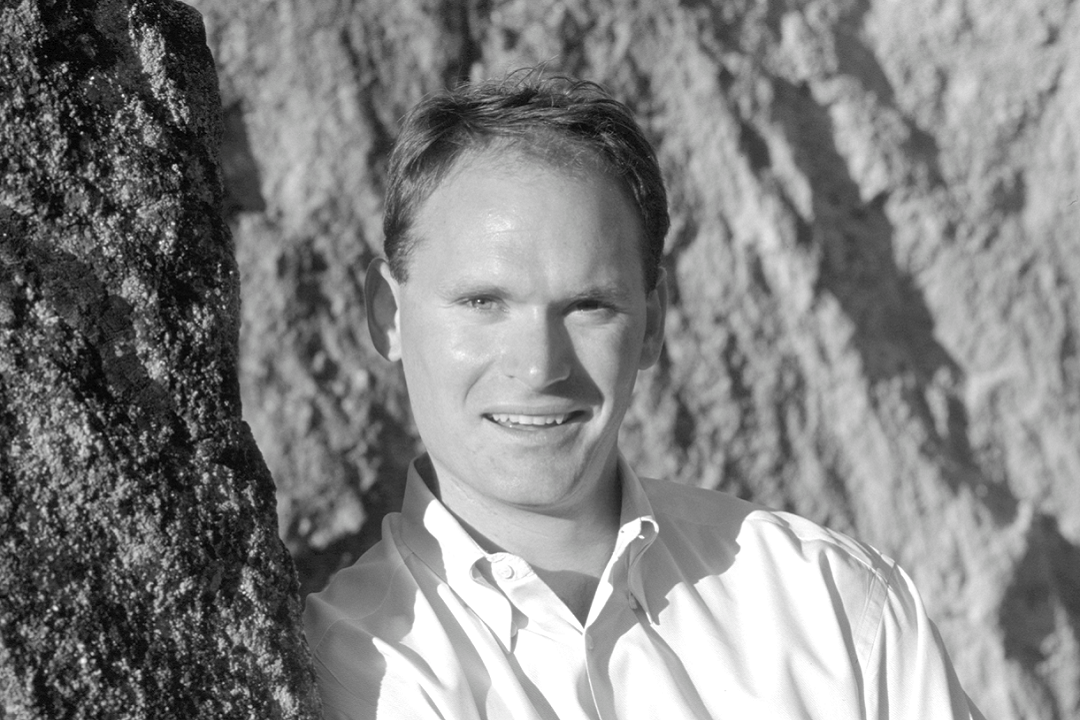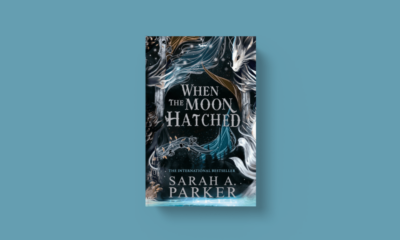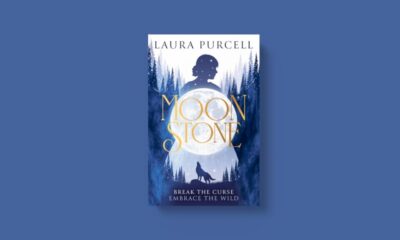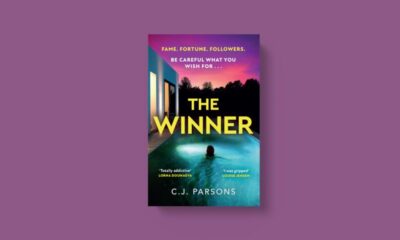Anthony Doerr is the author of five books: All The Light We Cannot See, The Shell Collector, About Grace, Four Seasons in Rome and Memory Wall. Doerr’s short fiction has won three O. Henry Prizes and has been anthologized in The Best American Short Stories, The Anchor Book of New American Short Stories, and The Scribner Anthology of Contemporary Fiction. He has won the Rome Prize, and shared the New York Public Library’s Young Lions Fiction Award with Jonathan Safran Foer. In 2007 Granta placed Doerr on its list of the “21 Best Young American novelists.” Doerr lives in Boise, Idaho, with his wife and two sons. On April 21st, 2015, we interviewed Anthony and discussed his method and objectives in writing his latest works.
________________________________________________________________________________________________________________________________________________
Q) In About Grace and All the Light We Cannot See you write very short chapters and leave each on an edge, often a sharply turned one. I’m revealing my shallowness but that suits me as a reader giving me an easy break point when I have to put a book down. And that edge means you will pull me back as the iron filing to the magnet of your story. How and why did you arrive at this technique (assuming it is a deliberate technique?) and how easy is it to manage?
A) For the past decade or so, I’ve been trying to build narratives out of short, titled sections; I’m not exactly sure why. Maybe it’s a way of tricking myself into writing big novels by working on very small things? Each day I only have to tell myself that I’m writing something manageable, a little thing that won’t hurt too much if it turns out I need to dispose of it.
Or maybe it’s just because I like working on miniatures, trying to make these little things clean and functional and elegant. And then one day you start laying them out on the carpet and trying to assemble them into a larger structure.
In All the Light, I liked the effect because I was playing around with puzzles in the book, and had conceived of Marie-Laure’s father as a puzzle-builder. So I began to feel, at least in this case, that form ran alongside content.
________________________________________________________________________________________________________________________________________________
 Q) As an American, choosing to write a book about WW2 in Europe centred on Werner, a German orphan, and Marie-Laure, a French girl is surely a brave move for your US readers. Did it give you pause for thought? And – sorry, that old chestnut – where did the inspiration start?
Q) As an American, choosing to write a book about WW2 in Europe centred on Werner, a German orphan, and Marie-Laure, a French girl is surely a brave move for your US readers. Did it give you pause for thought? And – sorry, that old chestnut – where did the inspiration start?
A) The inspiration for the book started eleven years ago on a train when I was seated behind a man talking on his cell phone. As we approached Manhattan, going probably 60 kilometers per hour, the carriage started heading underground, and the man’s call dropped. He started swearing and whacking his phone against the seatback in frustration. And I remember thinking: That little device you’re beating up, Mister, is a miracle. And we’ve forgotten that it’s a miracle.
The mobile phones that we rely on so much have tiny receivers and transmitters inside them, and they’re smaller than a deck of playing cards, and yet they can connect a person in London with someone in Tibet or Timbuktu. To the entire history our species, except for the last 3 or 4 generations, this would be mind-shattering magic.
So that very afternoon, eleven years ago, I wrote a title into my notebook: All the Light We Cannot See. I was thinking of all the electromagnetic radiation in the air that humans are incapable of seeing (all of light, really, mathematically speaking). And that night, I started a piece of fiction in which a girl reads a story to a boy over a radio.
As for writing a book without any American characters? Yes, yes, it gave me lots of pause. It meant everything was going to be harder. But probably it was the historical element that was the most difficult, rather than the cultural one: when I’d begin a scene, I wouldn’t know what a German paramilitary school would have looked like in 1940, or what kind of meals a Breton housekeeper might have cooked with ration tickets in 1942. So there were lots of days when I’d only write two or three sentences, before realizing I had to scurry back into the books.
________________________________________________________________________________________________________________________________________________
Q) Did you get to spend time over here researching the background – and if so where did you visit and how successful was it for your purposes?
A) I made trips to Germany and France and took lots of notes. The usefulness of travel for research in fiction writing is—at least for me—hard to quantify. You want to try to get the light right, the birds right, the feel of the people, the architecture, the skies, so in that way seeing places is invaluable. And travel is also important because of the many things you discover that you didn’t come to discover: you’re walking to see a war memorial, and suddenly you see a priest smoking a cigarette alone in a little Peugeot. That moment might derail your day, or it might blow oxygen into the stove of your imagination.
________________________________________________________________________________________________________________________________________________
 Q) After H20 in Grace it seems to be Marie-Laure’s blindness and Werner’s facility with radio – an invisible medium – that is the obsession with All the Light. Was that in your thinking from the outset or did it develop as you went along?
Q) After H20 in Grace it seems to be Marie-Laure’s blindness and Werner’s facility with radio – an invisible medium – that is the obsession with All the Light. Was that in your thinking from the outset or did it develop as you went along?
A) Sure, that’s fair. About Grace started with snow, and then I tried to construct metaphor out of that central interest. And in All the Light I was obsessed with radio from the very beginning. Or, rather, I was rediscovering and mining my lifelong fascination with radio, and trying to spin metaphors and characters up out of that. So I started with electromagnetism, but soon enough I started playing around with other understandings of light and technology and invisibility.
________________________________________________________________________________________________________________________________________________
Q) I read once about Phillip Pullman, author of the His Dark Materials, that his writing shed was like those incident walls you see so often in police procedurals – you know, where the team stare uncomprehendingly for hours until the penny suddenly drops, usually for our hero. Does this bear any similarities with your modus operandi?
 A) Ha! Maybe it does, yes. There were months when I would lay out all the chapters I’d written on the floor (probably over 200 at that point), and start reading them in various sequences, trying to find a chronology that I thought would work best.
________________________________________________________________________________________________________________________________________________
Q) Marie-Laure’s father makes models of their locales in Paris and St Malo so she can cope better when she has to go out. Yes it serves another purpose but are these a work of your imagination or are they based on actual models?
A) The models Marie-Laure’s father makes are imagined. But I’ve always loved scale models of towns; Paris’s museums, for example, are full of amazing maquettes once you start looking for them. And saints (including Saint Malo) were often rendered in paintings and sculpture holding little buildings, perhaps suggesting that they held their parishes in the palms of their hands. In all my work, I love to tinker around with scale: on the scales of bacteria we are inconceivably large, but on the scales of the universe we are inconceivably small.
________________________________________________________________________________________________________________________________________________
Q) I know St Malo quite well and what most visitors fail to realise when they marvel at the tightly walled city is that much of it was rebuilt after the war. Resorting to google, 4 Rue Vauborel, her uncle, Etienne’s house seems to exist but has that been rebuilt from what it was?
A) I’m not sure. Odds are that it was rebuilt, since almost every building in the town was. I needed a street that was close to the sea, and would have houses tall enough that it would be plausible that a radio could broadcast from there. And so I settled on the rue Vauborel. But the rest—Etienne’s house, the garret, the cellar—that was imagination.
________________________________________________________________________________________________________________________________________________
Q) Is it high praise if I compare you to another of my favourite writers and say your work reminds me of John Irving – not as quirky but yes as obsessive? And if that was a slanderous comparison perhaps you could venture some writers you do admire and what there is in their work that has influenced you?
A) Sure, I admire Irving’s work and am not slighted at all. Let’s see, some writers: Andrea Barrett’s books taught me that you can be passionate about science and storytelling. W.G Sebald’s books taught me that history and memory can interpenetrate in amazing ways; Cormac McCarthy taught me about narrative pressure and landscape; Stephen Millhauser taught me how to weave fable with the familiar; J.M. Coetzee taught me not to be afraid of taking on big questions; Virginia Woolf taught me that a writer can take wild risks and be extremely meticulous at the same time. I could go on for a while on this one…
________________________________________________________________________________________________________________________________________________



